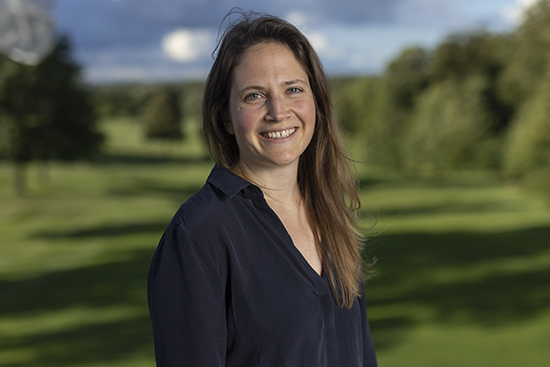Fellow 2024-2026
MD, PhD
Department of Immunology and Microbiology (ISIM)
2024-2026 fellows
Below you will find information about fellows from the 2024-2026 cohort, including their names, background, affiliations, project description, and mentor teams.
Fellows 2024-2026
Amanda Kvist-Hansen
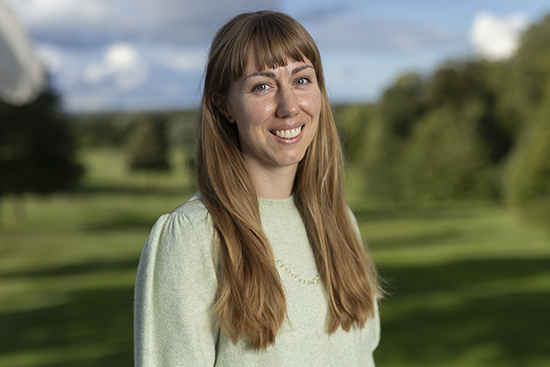
Project description and mentor team
Systemic inflammation in psoriasis – platelets, neutrophils, and their interactions
Psoriasis, affecting over 60 million people globally, is a chronic inflammatory skin disease with systemic
implications, including increased cardiovascular risk. The main symptom of the disease is inflamed and
scaly skin lesions, however, the patients also have systemic inflammation which is known to be an
important risk factor for cardiovascular disease. It is not completely understood what drives the systemic
inflammation in psoriasis and how this is affected by psoriasis treatment. This project aims to investigate
the underlying immunological mechanisms driving systemic inflammation in psoriasis. We will
characterize immune cells in the blood of patients with psoriasis and explore how these cells and their
functions are affected by psoriasis treatment. This project will bring us closer to an understanding of how
we should manage/treat systemic inflammation in patients with psoriasis and thereby potentially reduce
their risk of cardiovascular disease.
Mentors
Basic mentor: Professor Niels Ødum, Department of Immunology and Microbiology, University of Copenhagen
Clinical mentor: Professor Lone Skov, Chief physician, Department of Dermatology and Allergy, Herlev and Gentofte Hospital
Clinical mentor: Professor Claus H. Nielsen, Institute for Inflammation Research, Copenhagen University Hospital
Rigshospitalet
Clinical mentor: Lars H. Blom, Department of Dermatology and Allergy, Herlev and Gentofte Hospital
Anna Czarnota
Fellow 2024-2026
MSc, PhD
Department of Immunology and Microbiology (ISIM)
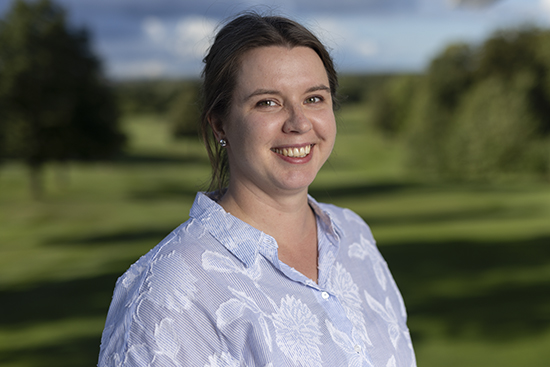
Project description and mentor team
Harnessing innovative virus-like particle vaccine platforms to develop novel HCV E1E2 vaccine antigens eliciting broadly protective immune responses
A prophylactic vaccine is needed to eliminate hepatitis C virus (HCV) as a major public health threat. HCV is
mainly transmitted by blood and causes chronic liver inflammation in an estimated 58 million individuals
worldwide, causing 290,000 deaths per year due to liver cirrhosis and cancer. Vaccine development is difficult, because target regions of antibodies that can protect against chronic infection are occluded on the virus and standard vaccination approaches result in induction of irrelevant antibodies.
We propose to design HCV vaccine antigens with the capacity to induce antibodies against such occluded target regions, exploiting recent scientific advances and novel technologies. We will harness the full potential of these vaccine antigens by displaying them on nanoparticles. The designed antigens will be characterized and selected using a comprehensive set of methods and world-class animal models. The novel antigens generated in this project can accelerate HCV vaccine development.
Mentors
Basic mentor: Professor Jens Bukh, Department of Immunology and Microbiology, Faculty of Health and Medical
Sciences, University of Copenhagen; Department of Infectious
Diseases, Chief Research Physician Copenhagen University Hospital, Hvidovre
Clinical mentor: Professor Judith Gottwein, Deparment of Infectious Diseases, Copenhagen University Hospital, Hvidovre (HVH); Dep. of Immunology and Microbiology (ISIM), Faculty of Health and Medical
Sciences, University of Copenhagen (UCPH); Part of Copenhagen Hepatitis C Program (CO-HEP), joint venture of ISIM, UCPH and Department of Infectious Diseases, HVH
Life science mentor: Professor and Chieft Scientific Officer Adam Frederik Sander Bertelsen, AdaptVac, DK;
Department of Immunology and Microbiology (ISIM), Faculty of Health and Medical Sciences, University of Copenhagen (UCPH); Rigshospitalet
Anna Kjøller-Offersgaard
Fellow 2024-2026
MSc, PhD
Department of Immunology and Microbiology (ISIM)
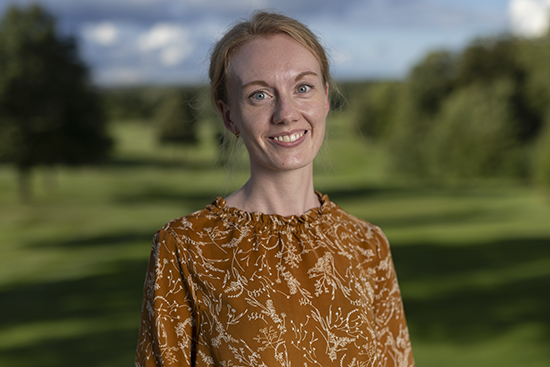
Project description and mentor team
Developing an inactivated HCV vaccine exposing critical epitopes for induction of broadly neutralizing antibodies
Hepatitis C virus (HCV) constitutes a severe public health care burden. The ~1.5 million yearly infections
are mainly due to unsafe health care procedures and injection drug use. Worldwide, ~58 million have a
chronic HCV infection, causing ~290,000 yearly deaths due to liver disease and cancer. Broadly neutralizing
antibodies (bnAb) were associated with protection from chronic HCV infection. We aim to mature our
frontrunner inactivated HCV vaccine candidate, shown to induce bnAb in mice, by investigating if the bnAb
induced by our candidate share critical characteristics of protective bnAb from patients. Further, we will
define vaccine regimen according to antigen dose and adjuvant in mouse studies. Moreover, we will explore
transgenic Vero cells as an alternative to the current vaccine producer cell line, Huh7.5, potentially yielding
production advantages for next generation vaccines. Findings will facilitate further development of our
candidate and guide HCV vaccine development.
Mentors
Basic mentor: Professor Jens Bukh, Department of Immunology and Microbiology, Faculty of Health and Medical
Sciences, University of Copenhagen; Department of Infectious
Diseases, Chief Research Physician Copenhagen University Hospital, Hvidovre
Clinical mentor: Professor Judith Gottwein, Deparment of Infectious Diseases, Copenhagen University Hospital, Hvidovre (HVH); Dep. of Immunology and Microbiology (ISIM), Faculty of Health and Medical
Sciences, University of Copenhagen (UCPH); Part of Copenhagen Hepatitis C Program (CO-HEP), joint venture of ISIM, UCPH and Department of Infectious Diseases, HVH
Industry mentor: Dr. Hans-Henrik Kristensen, Medical Director and Head of Regulatory Affairs, Medical Affairs & Scientific
Communication at AJ Vaccines, Copenhagen, Denmark
Elena Ethel Vidal-Calvo
Fellow 2024-2026
MSc, PhD
Department of Immunology and Microbiology (ISIM)
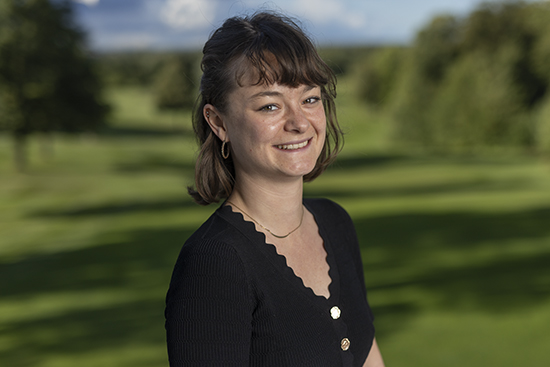
Project description and mentor team
Clinical potential of oncofetal-chondroitin sulfate for pan-cancer therapies
Cancer claims one in every six lives, with a projected 77% rise in cases by 2050. Existing treatments fall short
in fully curing most cancers, with a tremendous impact on families and healthcare systems. Our research group
identified a universal cancer marker, oncofetal-chondroitin sulfate (ofCS), offering a promising avenue for
broad, and potent targeted therapies with reduced side effects. Yet, much remains unknown about ofCS. My
project aims to expand our knowledge on ofCS with the long-term goal of improving patient treatment in the
future. I will study the relationship between ofCS expression and patients’ medical history (cancer type, stage
and prior treatment), elucidate how our treatment currently under development cures cancers in animal models,
and develop a human liver model to bring our therapy closer to clinical reality. My research will help improve
current and future treatments targeting ofCS including patient selection, and benefit research on ofCS role in
cancer.
Mentors
Basic mentor: Professor Ali Salanti, Department of Immunology and Microbiology, Faculty of Health and Medical Sciences, University of Copenhagen
Clinical mentor: Associate Professor Kristoffer Staal Rohrberg, Chief Physician, Head of Phase 1 Unit, Department of Oncology, Copenhagen University Hospital – Rigshospitalet; Department of Clinical Medicine, Copenhagen University
Supplementary basic mentor: Professor Thor Grundtvig Theander, Department of Immunology and Microbiology, Faculty of Health and Medical Sciences, University of Copenhagen
Industry mentor: Associate Professor Mads Daugaard, Chairman at VAR2 Pharmaceuticals ApS - Research Department, Head of Molecular Pathology & Cell Imaging Unit Vancouver Prostate Centre, Associate Professor at Department of Urologic Sciences, University of British Columbia, Canada
Hein Stroomberg
Fellow 2024-2026
MSc, PhD
Biotech Research & Innovation Centre (BRIC)
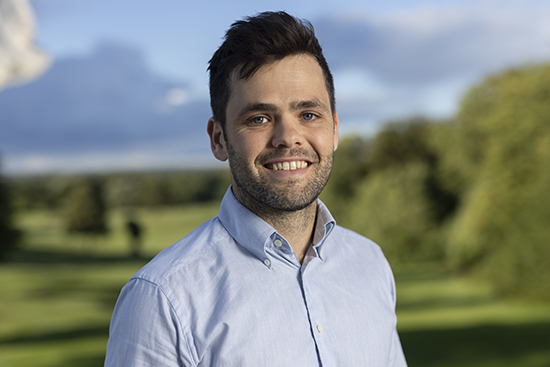
Project description and mentor team
Genetic predisposition of advanced prostate cancer
Prostate cancer (PCa) is the second most common cancer among Danish men, but we are still unable to
identify the men who will get advanced PCa and die from the disease. Currently, we lack an understanding
of the biology that drives cancer aggressiveness and why PCa spreads to other parts of the body in some
men but not in others. The result is that we tend to treat and diagnose too many men.
With this project, we will advance the understanding of PCa biology by utilizing unique Danish registries
and a large genetic study combining clinical data and basic sciences. We will use the Danish registries to
define the genetic signature at different disease stages from diagnosis and during the treatment and use our
genetic study to define how PCa develops in men diagnosed with aggressive disease. Our results will
improve our ability to identify men at risk of dying of PCa and subsequently decrease the number of men
diagnosed with PCa that will not require treatment.
Mentors
Basic mentor: Professor Joachim Lütken Weischenfeldt, Biotech Research & Innovation Centre, University of Copenhagen
Clinical mentor: Clinical Professor Andreas Røder, Senior Consultant, Department of Urology, Rigshospitalet
Clinical Professor of Urology, Department of Clinical Medicine, University of Copenhagen
Project description and mentor team
Therapeutic Potential of Luteinizing Hormone Blocking Treatment during Menopause
Hormonal replacement therapy is the only therapy for menopausal symptoms and complications but carries
unwanted side effects. Other treatments can be used for complications e.g., semaglutide for weight gain and
bisphosphonates/denosumab for osteoporosis.
We have human and animal data showing that high serum levels of Luteinizing hormone, which is a hallmark
of peri- and postmenopause and treatment, are implicated in menopausal weight gain, temperature regulation,
and osteoporosis. By pharmacological inhibition of LH activity in a menopausal mouse model, we aim to
establish proof of concept for this novel idea. In addition, we will evaluate the effect of blocking LH in human
fat biopsies using RNA transcriptomic and metabolomic analyses from women receiving GnRH-agonist
(lowers LH) or placebo.
Mentors
Basic mentor: Associate Professor Brice Emanuelli, Novo Nordisk Foundation Center for Basic Metabolic Research, Faculty of Health and Medical Sciences, University of Copenhagen
Clinical mentor: Martin Blomberg Jensen, MD, DMSc, EAA Andrologist, Head of research, Deptartment of Endocrinology, Internal Medicine Herlev-Gentofte Hospital
Supplementary basic mentor: Associate Professor Jacob B. Hansen, Department of Biology, Faculty of Science, University of Copenhagen
Katrine Kielsen
Fellow 2024-2026
MD, PhD
Department of Immunology and Microbiology (ISIM)
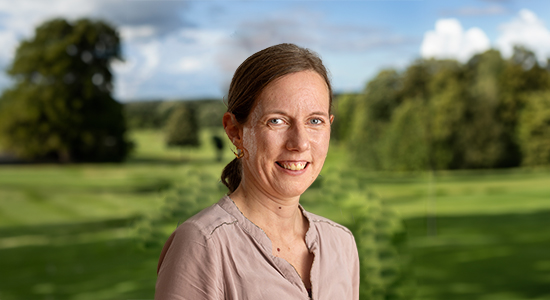
Project description and mentor team
T-cell metabolic fitness and clinical outcome after allogeneic stem cell transplantation
Hematopoietic stem cell transplantation (HSCT) treats cancer through transfer of a new immune system from
a healthy donor. The therapy is effective, but comes with a risk of a dysfunctional immune system leading to
unwanted immunity against non-cancer cells (e.g. lung and skin) and severe infections.
Previous laboratory studies indicate that regulation of immune cells is dependent upon their cellular
metabolism, and that a poor regulation of immune functions may be corrected by pharmacological and
nutritional treatment. We will investigate metabolic changes in the donor immune cells after HSCT using
novel technology that can measure real-time energy consumption in patient blood samples from an
internationally unique cohort of children treated with HSCT.
These insights will help us identify patients in risk of complications, and our ultimate goal is to be able to
prevent and treat these complications as well as other diseases caused by dysfunction of the immune system.
Mentors
Basic mentor: Professor Niels Ødum, Department of Immunology and Microbiology, University of Copenhagen
Clinical mentor: Professor Klaus Gottlob Müller, Department of Paediatrics and Adolescent Medicine, Rigshospitalet
Supplementary mentor: Associate professor Özcan Met, National Center for Cancer Immune Therapy, Herlev Hospital, and Technical University of Denmark
Nigel Kurgan
Fellow 2024-2026
MSc, PhD
Novo Nordisk Foundation Center for Basic Metabolic Research (CBMR)
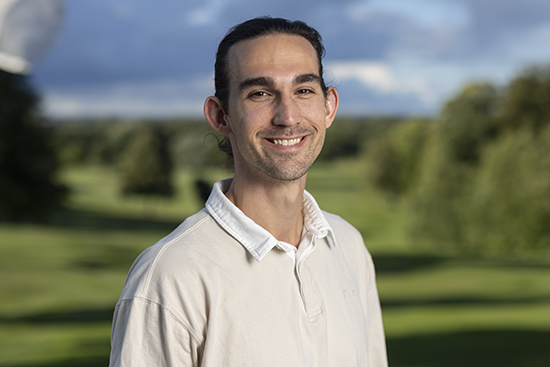
Project description and mentor team
Decoding Adipose-Derived Signals Linking to Obesity in Offspring of Women with Hyperglycemia
Obesity and related health problems are increasing worldwide. High blood sugar during pregnancy, seen in
mothers with type 1 or gestational diabetes, can predict obesity and cardiometabolic disease in their children.
However, the mechanism behind this intergenerational inheritance remains elusive. Our project aims to delve
into how this transmission of obesity risk from mother to child unfolds. Specifically, we're employing
cutting-edge molecular techniques to investigate changes in blood and adipose tissue molecules over time in
children born from pregnancies characterized by normal or high blood sugar levels. Through the integration
of crucial clinical data with molecular data from tissues linked to obesity, we aim to unravel how high blood
sugar during pregnancy contributes to obesity and cardiometabolic diseases. Ultimately, our findings could
pave the way for the identification of early warning indicators in blood, facilitating timely nonpharmacological
interventions.
Mentors
Basic mentor: Associate Professor Atul Shahaji Deshmukh, Novo Nordisk Center for Basic Metabolic Research, Faculty of Health and Medical Sciences, University of Copenhagen
Clinical mentor: Professor Allan A. Vaag, Steno Diabetes Center Copenhagen (SDCC) and Lund University Diabetes Center, Lund University
Supplementary basic mentor: Professor Simon Rasmussen, Novo Nordisk Foundation
Center for Basic Metabolic Research, University of Copenhagen
Ole Bæk
Fellow 2024-2026
MD, PhD
Department of Veterinary and Animal Sciences (IVH)
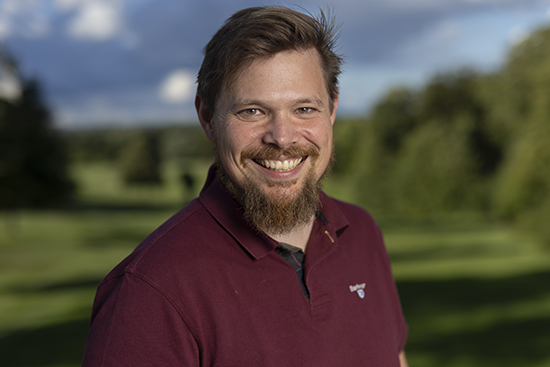
Project description and mentor team
Exploiting energy metabolic pathways during early life to reduce childhood infection risks
This project aims to find new ways to protect newborns from infections, which they're especially vulnerable
to due to their developing immune systems and lower energy reserves. Unlike older children, the immune system
of newborns is has learn the difference between harmful and harmless microbes, often opting to tolerate rather
than fight off these germs. This cautious approach is partly because their bodies are focused on growing and
developing vital organs, leaving less energy available for battling infections.
We suspect that newborns that are at a high risk of infections will show differences in the way their body
generates energy from nutrients and that by tweaking these pathways—perhaps through dietary changes or
specific nutritional supplements—we can bolster infants' defenses against infections.
Our ultimate goal is to lay the groundwork for simple, practical strategies that can significantly reduce the
frequency and severity of infections in early childhood.
Mentors
Basic mentor: Associate Professor Duc Ninh Nguyen, Department of Veterinary and Animal Sciences, University of Copenhagen
Clinical mentor: Bo Chawes, MD, PhD, DMSc, Consultant in pediatrics, Deptartment of Pediatrics and COPSAC, Herlev-Gentofte Hospital
Sarah Louise Tangsgaard Christensen
Fellow 2024-2026
DVM, PhD
Center for Translational Neuromedicine (CTN)
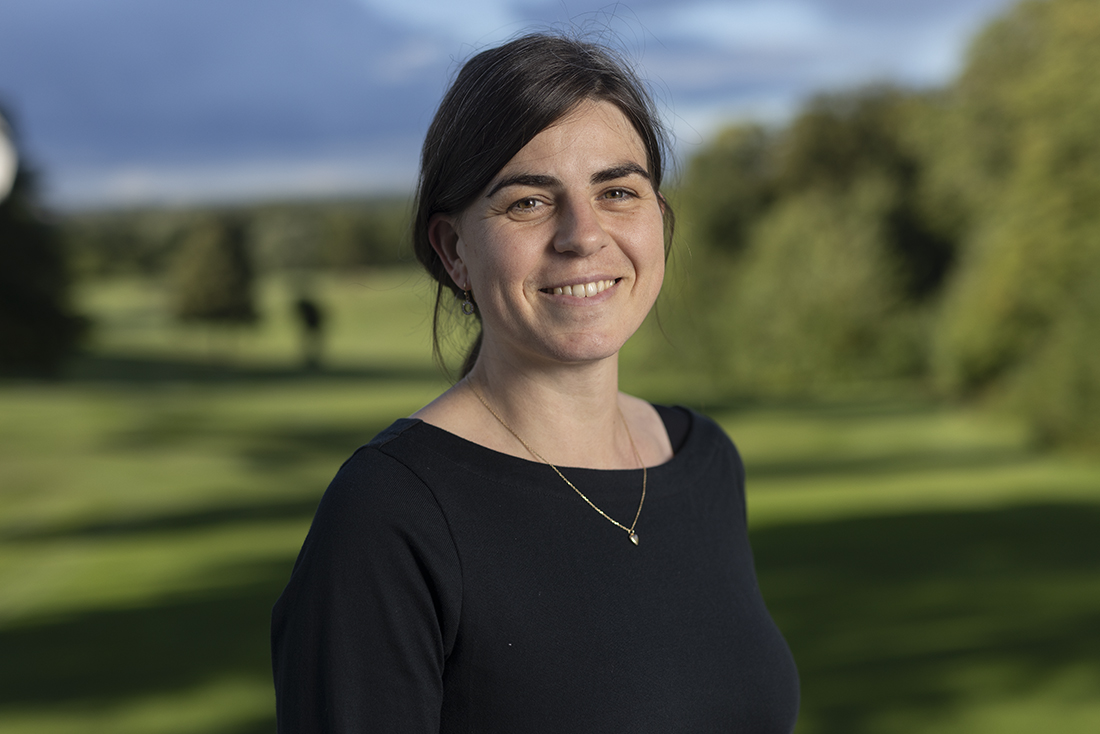
Project description and mentor team
Understanding migraine pain mechanisms: In vivo imaging of meningeal vasculature and mast cells in response to the headache trigger PACAP38
The aim of the project is to learn about events contributing to migraine pain. Migraine is the leading cause of disability among younger women, yet it is unknown how female sex hormones influence migraine signalling mechanisms. Meningeal mast cells have long been proposed as important in migraine pain mechanisms. These cells are likely influenced by sex hormones and may be a key to understand female migraine susceptibility. Here, we will live track meningeal mast cells of mice throughout the hormonal cycle. Furthermore, we will track mast cell responses following induction of a migraine-like state and associated reactions in the meningeal blood vessels. Results of the project will validate if mast cells are a relevant target for migraine treatment and if they contribute to the gender bias observed in migraine prevalence and morbidity. This research also has relevance to post-traumatic headache and cluster headache.
Mentors
Basic mentor: Professor Maiken Nedergaard, Center for Translational Neuromedicine, Faculty of Health and Medical Sciences, Univeristy of Copenhagen
Clinical mentor: Clinical Associate Professor Henrik Winther Schytz, Department of Neurology, Danish Headache Center, Copenhagen University Hospital – Rigshospitalet
Industry mentor: Dr. Benjamin Hall, Director Circuit Biology at Lundbeck A/S
Sidsel Christy Lindgaard
Fellow 2024-2026
MD, PhD
Novo Nordisk Center for Protein Research (CPR)
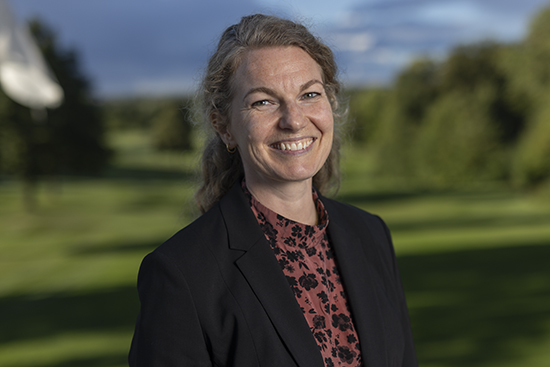
Project description and mentor team
Panels of circulating proteins for early diagnosis of pancreatic cancer
Pancreatic cancer has one of the highest mortality rates of all cancers. Symptoms are vague, and diagnosis is
often reached at an advanced disease stage. This results in less than 20% of patients being eligible for surgery
at the time of diagnosis. These patients have the highest 5-year survival of up to 45%. However, when
diagnosed with metastasis, the 5-year survival is a dismal 3%. Early diagnosis would, therefore, improve the
overall survival of patients with pancreatic cancer, as more patients would be eligible for surgery.
In the current study, we wish to explore levels of 5,400 proteins in the blood of patients with pancreatic cancer
and selected controls. With this, we will gain further knowledge of the biology and identify a group of proteins
to be used for early detection of pancreatic cancer. These findings will be validated in a different patient cohort
and could be a game-changer for the diagnosis and survival of patients with pancreatic cancer.
Mentors
Basic mentor: Professor Søren Brunak, Novo Nordisk Foundation Center for Protein Research, Faculty of Health and Medical Sciences, University of Copenhagen
Clinical mentor: Professor Julia S. Johansen, Departments of Oncology and Medicine, Copenhagen University Hospital – Herlev and Gentofte; Department of Medicine, The Faculty of Health and Medical Sciences, University of Copenhagen
Sophie Stotz
Fellow 2024-2026
MSc, PhD
Department of Drug Design and Pharmacology (ILF)
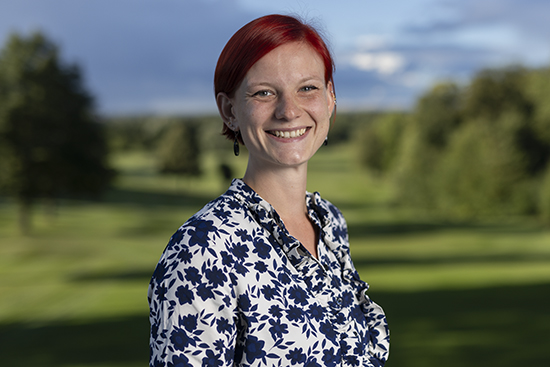
Project description and mentor team
PET Imaging of PSD-95 – Unlocking the Quantification of Postsynaptic Density
The postsynaptic density (PostSD) is crucial for regulating synaptic function in the brain, and its
dysfunction is linked to various neurological disorders like Alzheimer's or Parkinson's disease. Postsynaptic
density protein 95 (PSD-95) is a key player in this structure and has been proposed as a potential therapeutic
target. This project aims to visualize PSD-95 in the brain using a specific peptide, UCCB01-144, labeled
with a radioactive isotope to detect it in the body. Since UCCB01-144 cannot enter the brain due to the
protective blood-brain barrier (BBB), the project proposes using focused ultrasound to shuttle it across the
BBB. The objectives include optimization of radiotracer synthesis, testing the molecule in animal models,
and comparing it with existing biomarkers. This project lays the groundwork for understanding and treating
neurological diseases, potentially impacting conditions beyond Alzheimer's and Parkinson's, such as
Huntington’s disease and depression.
Mentors
Basic mentor: Professor Matthias M. Herth, Department of Drug Design and Pharmacology, Faculty of Health and Medical Sciences, University of Copenhagen
Clinical mentor: Professor Gitte M. Knudsen, Neurobiology Research Unit and Deptartment of Clinical Medicine, Rigshospitalet and University of Copenhagen
Life science mentor: Professor Kristian Strømgaard, Avilex Pharma, Copenhagen and Department of Drug Design and Pharmacology, University of Copenhagen
Steffen Ernesto Kristensen
Fellow 2024-2026
MD, PhD
Department of Cellular and Molecular Medicine (ICMM)
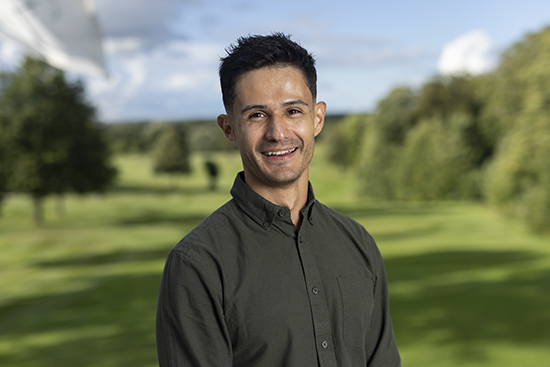
Project description and mentor team
Twin Growth Restriction (TWIGR): Genomics and Ultrasonomics for Improved Prenatal Care
Currently, more than one in five twins are born too small, a condition known as fetal growth restriction
(FGR). With the global increase in twin pregnancies, mainly due to higher demands for infertility
treatment, the need to address FGR intensifies. In its most severe form, FGR can be life-threatening or
lead to serious health and developmental issues, deeply affecting individuals, families, and societal health
resources. Despite this, the underlying mechanisms of FGR are not well understood, and research
specifically targeting twin pregnancies has been limited. The Twin Growth Restriction (TWIGR) project
aims to fill this gap, using innovative artificial intelligence models to analyse ultrasound images alongside
a novel genetic blood test to decode the complexities of FGR. Our goal is to forge a path toward healthier
twins and families by advancing prevention, detection, and intervention strategies for FGR, with the
potential to improve prenatal care and outcomes for twins globally.
Mentors
Basic mentor: Professor Eva R. Hoffman, Department of Cellular and Molecular Medicine, Faculty of Helath and Medical Sciences, University of Copenhagen
Clinical mentor: Clinical Professor Olav B. Petersen, Center for Fetal Medicine and Ultrasound, Department of Gynecology, Fertility and Obstetrics, Copenhagen University Hospital – Rigshospitalet Department of Clinical Medicine, Faculty of Health and Medical Sciences, University of Copenhagen
Life science industry mentor: Ida Vogel, PhD, DMSc, Clinical Professor in Prenatal Diagnostic Testing, Aarhus University, Aarhus University Hospital; affiliated with Advanced Rare Cell Diagnostics (ARCEDI) BioTech ApS
Supplementory clinical mentor: Martin G. Tolsgaard, PhD, DMSc, Clinical, Professor in Medical Education, Copenhagen
Academy for Medical Education and Simulation, Department of Gynecology, Fertility and Obstetrics, Copenhagen University Hospital - Rigshospitalet; Department of Clinical Medicine, Faculty of Health and Medical Sciences, University of Copenhagen
Susan Lin
Fellow 2024-2026
MSc, PhD
Department of Neuroscience (IN)
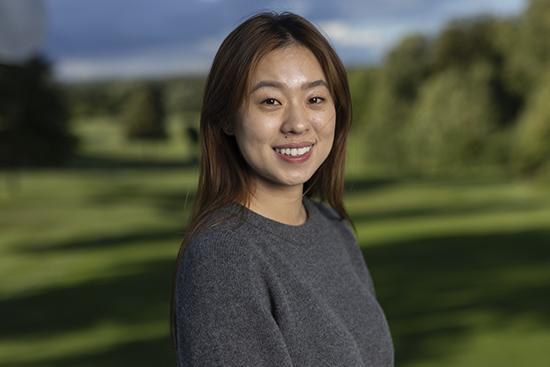
Project description and mentor team
GABRB3 -from disease causing variants to targeted therapy
Developmental and Epileptic Encephalopathies (DEEs) constitutes a group of rare, severe
neurodevelopmental disorders, affecting 1 in 590 infants, causing intellectual and developmental delays
and movement problems. Children with DEE often have seizures that start early in life and are hard to
treat. This condition is primarily genetic, with to date, 300+ causative genes have been identified.
A leading cause of DEEs are the dysfunction of the major inhibitory receptor in the brain, called the
GABAAR. Some genetic changes can make this receptor either too sensitive or not sensitive enough to
GABA, the native chemical in the brain that actions the GABAAR. Surprisingly, when the receptor
becomes too active, patients tend to have a more severe response. In addition, there are no drugs
available to treat these patients.
This project aims to determine the mechanism by which changes in the GABAAR cause DEE.
Employing cutting-edge stem cell technologies, we will identify potential treatment for these patients.
The goal is to better understand DEE and open the door to personalised treatments and develop novel
treatment options.
Mentors
Basic mentor: Professor Jakob Balslev Sørensen, Department of Neuroscience, Faculty of Health and Medical Sciences, University of Copenhagen; Scientific Director for Neuroscience Academy Denmark
Clinical mentor: Professor Rikke Steensbjerre Møller, Department of Epilepsy Genetics and Personalized Medicine, Danish Epilepsy Centre, Department of Regional Health Research, University of Southern Denmark, Denmark
Supplementary clinical mentor: Professor Zeynep Tümer, Department of Clinical Genetics, Copenhagen University Hospital, Rigshospitalet; affiliated to Department of Clinical Medicine, Faculty of Health and Medical Sciences, University of Copenhagen

